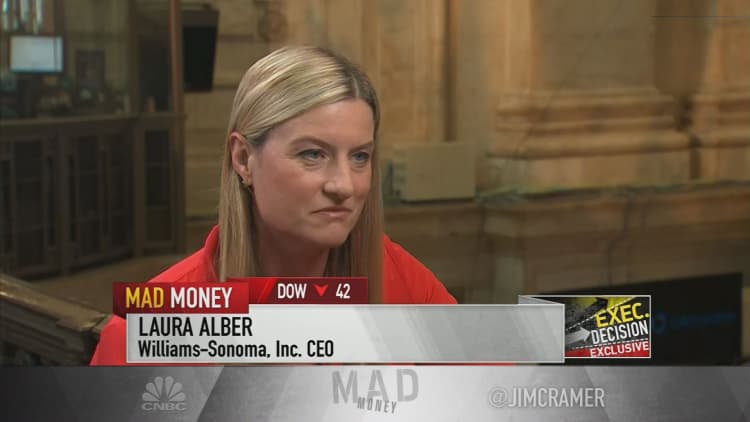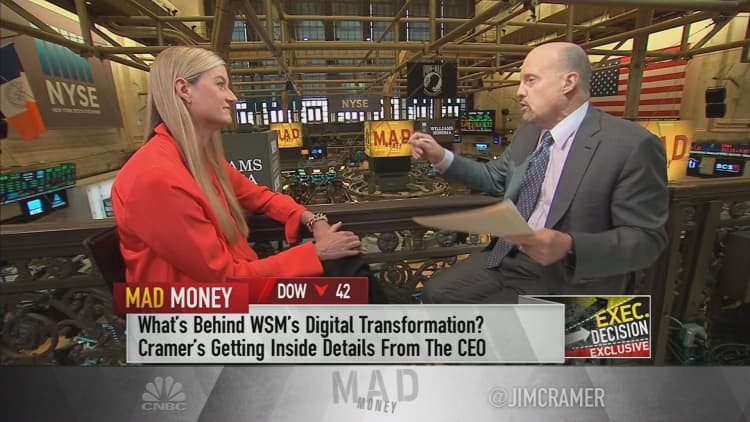
As Williams-Sonoma's business shifted from selling via catalogs to selling online, the furniture and kitchenware retailer remained consistently adamant about one thing: its stores.
"Even Amazon believes that they should have some real spaces," Laura Alber, the company's president and CEO, told CNBC on Wednesday. "When you go in a store and it's wonderful, it helps you make the purchase."
Scores of retailers are parsing how to enter the age of e-commerce, with many shuttering stores and building out their digital capabilities and others adopting pop-up shop formats to skirt the high real estate costs often associated with brick-and-mortar retail.
Many industry experts saw Amazon's acquisition of Whole Foods as a way for the e-commerce giant to preserve an on-the-ground retail presence, among other advantages.
But for Williams-Sonoma, which Alber said benefited from its time as a catalog-focused seller, a multichannel solution seems to be its secret sauce.
"We see our best customers cross-channel," Alber told "Mad Money" host Jim Cramer in an interview. "There's a lot of people just online, there's a lot of people just focused on big stores. We are focused on both because we know that's how you shop."
Headquartered in San Francisco, the Pottery Barn and West Elm parent has also reaped the benefits of its proximity to Silicon Valley, the CEO said.
Between Williams-Sonoma's big data projects — which help the company see what customers like and predict what they might buy next — its 3D room-planning technology and its online advertising initiatives, Silicon Valley provides valuable resources and insights for Alber's team.
"We are constantly down there, talking to Google, talking to Facebook, doing testing with them. And because we have seven brands, we can try something [at one of them] before we roll it across the brands. It's really, really interesting and fun," Alber told Cramer.
One key opportunity Alber sees is with online video advertising, especially on YouTube, which is owned by Alphabet's Google, but also on Facebook and Williams-Sonoma's own website.
"We're testing all sorts of things" including partnering with bloggers, emailing videos to customers and hopping aboard the wildly popular recipe-video trend using Williams-Sonoma appliances, Alber said.
"Customers love the movement. They love learning how to do things," she said. "And with our Williams-Sonoma brand, we have such an opportunity. Our recipes are one of our most clicked things on our site and they're out, of course, all over the internet. And it's such an example of bringing the brand to life and helping the customer with our products really celebrate."
Watch Laura Alber's full interview here:

Disclosure: Cramer's charitable trust owns shares of Amazon, Facebook and Alphabet.
Questions for Cramer?
Call Cramer: 1-800-743-CNBC
Want to take a deep dive into Cramer's world? Hit him up!
Mad Money Twitter - Jim Cramer Twitter - Facebook - Instagram - Vine
Questions, comments, suggestions for the "Mad Money" website? madcap@cnbc.com



